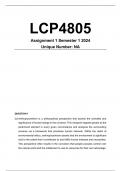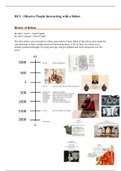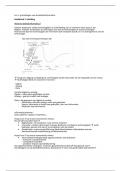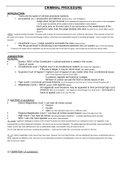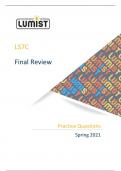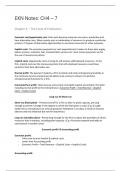Bioethics: Meaning and Key Concepts
Bioethics comes from the Greek words bios, which means “life”, and ethos, which
originally means “custom”. On the one hand, ethics is a branch of philosophy that
studies the rightness or wrongness of human actions. On the other hand, bioethics is the
application of the principles of ethics to the field of medicine and healthcare. Broadly
construed, bioethics, as applied ethics, is defined as the ethics of life.
In particular, bioethics is concerned with the ethical issues that arise from the
emergence and development in the life sciences, such as biotechnology and medicine.
Some of these ethical issues include euthanasia, abortion, suicide, human cloning,
allocation of healthcare resources, genetic engineering, artificial insemination,
contraception, and organ donation and transplantation. As we can see, bioethicists
address the morality of these ethical issues using appropriate ethical theories, such as
utilitarian ethics, Kantian ethics, Christian ethics, and Pragmatic ethics. For example, a
bioethicist may argue that abortion is immoral because, using Kantian ethics, it treats
the human person as a means rather than as an end.
Core Bioethical Principles
As an applied ethics, bioethics applies the principles of ethics to the field of medicine
and healthcare. Some of these principles are stewardship, totality, solidarity, respect for
persons, non-maleficence, beneficence, justice, and autonomy.
Stewardship is a principle in Christian ethics that suggests that human life comes from
God, and no individual is the master of her own body. Humans are only viewed as
stewards or caretakers, having the responsibility of protecting and cultivating spiritual
and bodily functions. Thus, as stewards, humans should not harm but rather improve
and care for their bodies.
Totality refers to the whole body. This means that every person has the duty to develop,
use, care for, and preserve all her bodily parts. However, this ethical principle suggests
that an individual has the right to cut off or mutilate any defective or worn out parts of
the body.
Solidarity suggests being one with the other. In the healthcare profession, healthcare
professionals should be one with their patients or clients. As we can see, the principle of
solidarity is very important in dealing with the poor, the uneducated, the disadvantaged,
and the marginalized.
Bioethics comes from the Greek words bios, which means “life”, and ethos, which
originally means “custom”. On the one hand, ethics is a branch of philosophy that
studies the rightness or wrongness of human actions. On the other hand, bioethics is the
application of the principles of ethics to the field of medicine and healthcare. Broadly
construed, bioethics, as applied ethics, is defined as the ethics of life.
In particular, bioethics is concerned with the ethical issues that arise from the
emergence and development in the life sciences, such as biotechnology and medicine.
Some of these ethical issues include euthanasia, abortion, suicide, human cloning,
allocation of healthcare resources, genetic engineering, artificial insemination,
contraception, and organ donation and transplantation. As we can see, bioethicists
address the morality of these ethical issues using appropriate ethical theories, such as
utilitarian ethics, Kantian ethics, Christian ethics, and Pragmatic ethics. For example, a
bioethicist may argue that abortion is immoral because, using Kantian ethics, it treats
the human person as a means rather than as an end.
Core Bioethical Principles
As an applied ethics, bioethics applies the principles of ethics to the field of medicine
and healthcare. Some of these principles are stewardship, totality, solidarity, respect for
persons, non-maleficence, beneficence, justice, and autonomy.
Stewardship is a principle in Christian ethics that suggests that human life comes from
God, and no individual is the master of her own body. Humans are only viewed as
stewards or caretakers, having the responsibility of protecting and cultivating spiritual
and bodily functions. Thus, as stewards, humans should not harm but rather improve
and care for their bodies.
Totality refers to the whole body. This means that every person has the duty to develop,
use, care for, and preserve all her bodily parts. However, this ethical principle suggests
that an individual has the right to cut off or mutilate any defective or worn out parts of
the body.
Solidarity suggests being one with the other. In the healthcare profession, healthcare
professionals should be one with their patients or clients. As we can see, the principle of
solidarity is very important in dealing with the poor, the uneducated, the disadvantaged,
and the marginalized.


